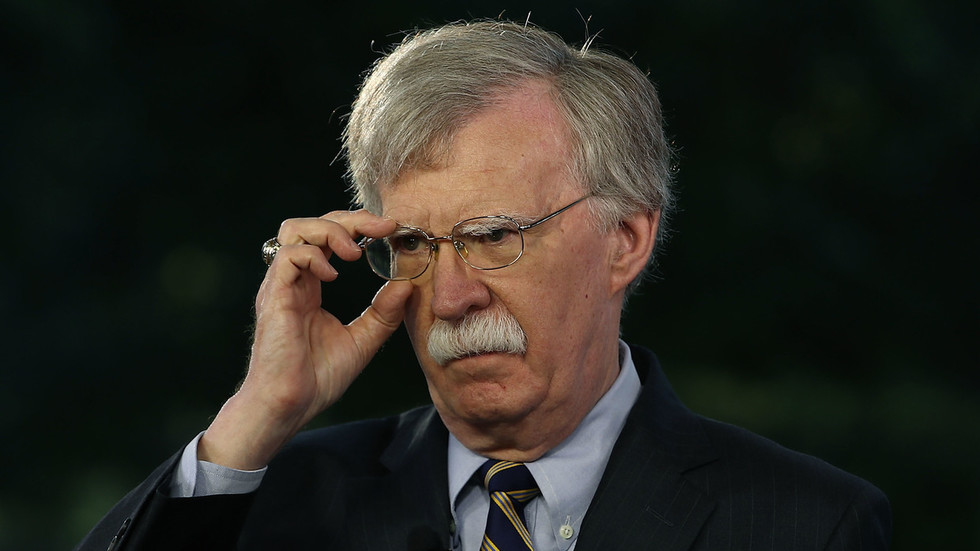
The neoconservative hawk is promoting his vision of revolution in Russia. Fortunately for the world, his ideas are based on fiction

Scott Ritter is a former US Marine Corps intelligence officer and author of ‘Disarmament in the Time of Perestroika: Arms Control and the End of the Soviet Union.’ He served in the Soviet Union as an inspector implementing the INF Treaty, in General Schwarzkopf’s staff during the Gulf War, and from 1991-1998 as a UN weapons inspector.
Scott Ritter is a former US Marine Corps intelligence officer and author of ‘Disarmament in the Time of Perestroika: Arms Control and the End of the Soviet Union.’ He served in the Soviet Union as an inspector implementing the INF Treaty, in General Schwarzkopf’s staff during the Gulf War, and from 1991-1998 as a UN weapons inspector.
@RealScottRitter@ScottRitter
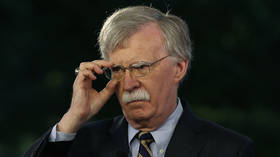
National Security Adviser John Bolton. © Mark Wilson/Getty Images
John Bolton, the former National Security Advisor for President Donald Trump, recently published an article titled ‘Putin must go: Now is the time for regime change in Russia.’
One must keep in mind that these words come from a man who famously commented, while speaking in February 1994 at an event in New York called the ‘Global Structures Convocation,’ that the “Secretariat building in New York has 38 stories. If it lost ten stories, it wouldn’t make a bit of difference.”
Bolton lambasts the fact that, according to the White House, President Joe Biden wasn’t really serious about regime change in Russia when, during remarks made in Poland last March, he blurted out “For God’s sake, this man cannot remain in power.” As I’ve said before, I believe Biden was, in fact, dead serious about his desire for regime change in Russia, and that it has been, and continues to be, the unstated policy of the United States to remove Vladimir Putin from office. And Washington is actively implementing policies designed to achieve that very result.
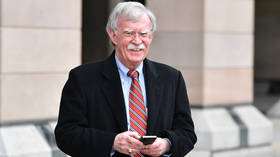
Read more
What separates Bolton from the Biden White House is the honesty that is produced by being outside the halls of power, as Bolton is today, where your words no longer resonate with relevance. Bolton is free to give voice to that which the Biden administration only whispers about in the dark recesses of the White House situation room.
How else would one describe the goals and objectives of a policy build on the massive sanctioning of the Russian people – designed to destroy their quality of life and means of support – in an effort to generate a level of domestic political unrest sufficient to fomenting a modern day ‘Moscow Maidan,’ reminiscent of the February 2014 events in Kiev that resulted in the ouster of former Ukrainian President Victor Yanukovich?
Bolton himself alludes to this possibility in his article. “There is no long-term prospect for peace and security in Europe without regime change in Russia,” he writes. “Russians are already discussing it; quietly, for obvious reasons.”
The notion that Putin is vulnerable to being ousted by a popular uprising flies in the face of reality, given Russian opinion polling. Even from western-linked sources.
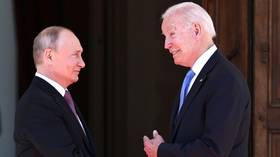
Read more
Fact-based analysis, however, is not something Bolton is known for. One need only run down the litany of regurgitated points he cites to hammer his idea home – Russian casualties, economic ‘pain’ brought on by sanctions, ‘rising’ political opposition, young men ‘fleeing’ the country, the rhetorical ‘brandishing’ of nuclear weapons by Moscow, and, to top it off, he alleges Russian sabotage of the NordStream pipelines.
Bolton’s mission is not to tell the truth about Russia but rather to shape perception for the purpose of manufacturing a false narrative. The perception of the existence of a viable domestic political opposition is essential to the regime-change fantasy being promulgated by Bolton. “Carefully assisting Russian dissidents to pursue regime change might just be the answer,” Bolton opines, responding to the question of how to bring about an end to the Ukraine conflict.
Regime change, Bolton notes, “must involve far more than simply replacing Putin,” adding that “[among Putin’s] inner circle, several potential successors would be worse.” The problem, Bolton states, “is not one man, but the collective leadership constructed over the last two decades. No civilian governmental structure exists to effect change, not even a Politburo like the one that retired Nikita Khrushchev after the Cuban missile crisis. The whole regime must go.”
How to accomplish such a massive undertaking? Here Bolton seems to have been an avid reader of Mikhail Khodorkovsky, the exiled oligarch-turned-political activist, who in his new book The Russia Conundrum writes extensively about the so-called “Men of Power,” or Siloviki. “The key,” Bolton states, “is for Russians themselves to exacerbate divisions among those with real authority, the siloviki, the ‘men of power.’ Disagreements and animosities already exist, as in all authoritarian regimes, exploitable as dissidents set their minds to it.” By using the siloviki to shatter regime coherence and solidarity, Bolton declares, “change is possible.”
What “change” does Bolton propose? A military coup, of course, conducted not “from the top flag officers and officials, who are too personally invested in the Putin regime,” but rather “from the colonels and one-star generals, and their civilian-agency equivalents” who are, in Bolton’s view, “the most-likely co-conspirators to take matters into their own hands. These are the decision-makers whom the dissidents must identify, persuade and support to facilitate regime change.”
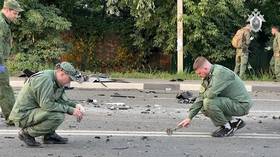
Read more
Fortunately for Putin, Bolton isn’t very good at carrying out regime-change operations, although he has publicly bragged about his role in implementing them as official US government policy. Coups, Bolton told CNN’s Jake Tapper during an interview in July 2022, “take a lot of work.” Bolton bragged about his status as “somebody who has helped plan coups d’etat.”
By way of example, Bolton referred to efforts undertaken by the Trump administration to support Venezuelan opposition leader Juan Guaido in his effort to overthrow President Nicolas Maduro. “Not that we had all that much to do with it, but I saw what it took for an opposition to try to overturn an illegally elected president,” Bolton bragged, before adding, “and they failed.”
It speaks volumes about the mental state of an individual who, uninvited, seeks to impose himself on one of the most important issues of our time–the geopolitical struggle between the collective West and Russia over the future European security framework–by promulgating a template of regime change in Russia drawn from the disastrous example of a failed US-backed coup in Venezuela.
The good news is that any such effort undertaken by the US government in Russia is guaranteed to suffer the same fate as the Bolton-inspired coup in Venezuela—abject failure.
The bad news is that the world has to suffer through the incoherent ramblings of a neoconservative warmonger who had been put out to pasture but, because of the vacuum of coherence that is US policy on Russia, saw an opportunity to reinject his flawed thinking into the cacophony of opinions that comprises what passes for informed foreign-policy discussion in America today.
The statements, views and opinions expressed in this column are solely those of the author and do not necessarily represent those of RT.




